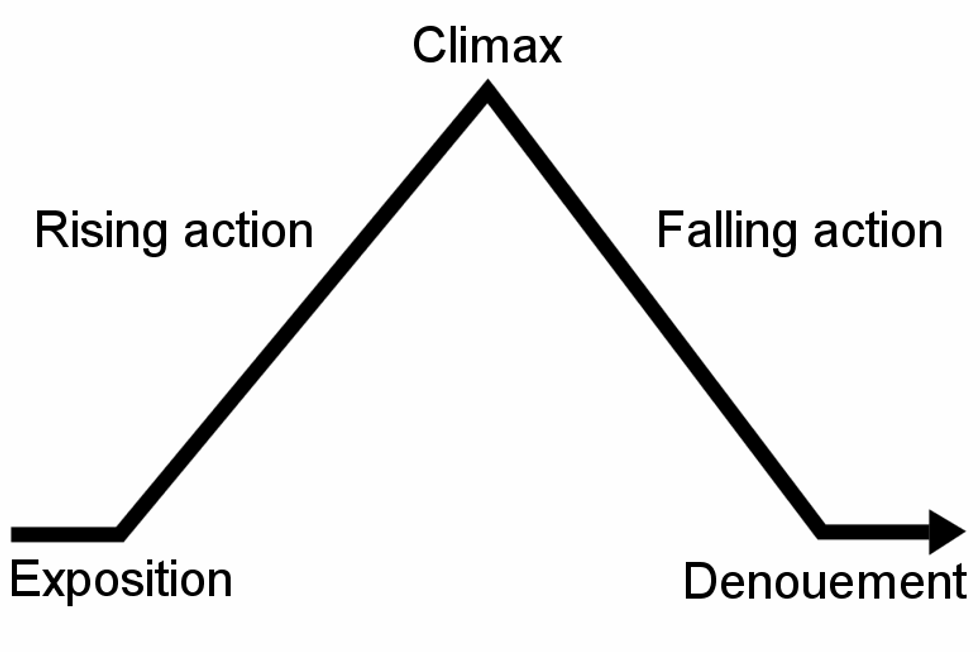Imagine a word that could perfectly encapsulate and describe the events of the past seven months of 2016—a word that captures the tragedy, turbulence, progress, and absurdity of the year thus far. It’s almost an impossible task, because there are so many ways of interpreting the importance of certain events and what kind of impact they have on the world that the choice is a matter of subjectivity. The Global Language Monitor, a Silicon Valley company that specializes in “Big Data” (a field dedicated to using innovative technology to understand vast amounts of new information), has developed a way to find such a word purely through algorithm. Its founder, Paul J.J. Payack, utilizes a Predictive Quantities Indicator to track buzzwords trending in the media and on the internet “in relation to frequency, context, and appearance in the global media." Through this interpretation of big data, the Global Language Monitor found the most trending word of 2016 and possibly a candidate for that elusive year-defining word -- bigly.
Bigly is an adverb to the better known adjective “big.” The Global Language Monitor notes that it means “Things trending larger.” In recent history, the word has been utilized by Donald Trump in a speech delivered from Trump Tower in New York on May 3, 2016. Since then, it has become associated with twitter hashtags and mockery of Trump’s intellect. However, for the purpose of this article, we will ignore that particular context and focus on the word’s application to the overview of the year.
Though it may seem irrational to strip such a vague word of its context, there is a precedent, in which a trending word has encapsulated phenomenons outside its current context. In 2016’s trending words report, Payack states that “The twenty-first century trends that accompany these words might similarly portend far greater events than they represent today.” This fact is exactly how the Global Language Monitor, in 2006, managed to predict the real estate crisis of 2007 through the frequency of buzzwords like “soft landing” and “pause” and “housing bubble.” We should not rule out the possibility that “bigly” could be hinting at some greater development in our world.
This big data algorithm helps us understand a lot more than what’s trending; it helps us infer the general perception of people connected to the global media. “Soft landing” and “pause” are words associated with hope in market terminology—hope of avoiding a looming disaster. Thus, those words represented a perception of fear for what was to come—the burst of the “housing bubble.” Yet what could “bigly” say about our general perception of recent events in the world?
In all likelihood, when people talk about “things trending larger,” they mean things escalating beyond the status quo. From a certain point of view, escalation can seem definitive for 2016. For example, terrorist attacks show up in headlines on a weekly basis; the Zika virus continues its march across the Americas; the western world has taken a liking to ultranationalists; scandals, shootings, and heated national feuds ruin relationships and create mistrust in society. One may understandably view all these events, see a pattern, and assume the world is like a drama building up to a climax.
However, from a different perspective with a wider context, escalation may be the wrong word to describe the times. For instance, terrorist attacks—either committed by lone wolves or organized extremists—have persisted since the September 11 attacks and even before then; just two years ago, the Ebola virus created a much greater fright for the world with an absurdly high bodycount in comparison to Zika; decades ago, globalization fueled the rise of ultranationalists, who were disgruntled by its effects on their countries; scandals, shootings, and national feuds did not begin in this year, and they will certainly not stop once 2017 starts. At the moment, events can appear to be escalating to the breaking point of normalcy, yet they almost always turn out to be part of larger trends over time.
So why is there a sudden perception of “things trending larger?” I suspect it may have to do with the makeup of the general consensus in global media. My theory is a long shot, but just maybe the global media is experiencing an influx of people who have not experienced enough to see larger trends in a changing world. If my theory is correct, then perhaps Millennials are starting to see their perspectives influence the way the media interprets information. But that’s just a theory.




















